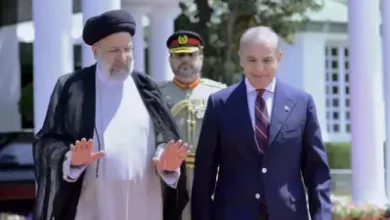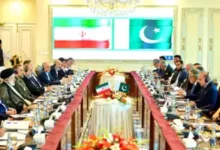-
NATIONAL

Recurve squad prepares for championship match against powerful Korea
In the Archery World Cup Stage 1 today, the Indian team of Tarundeep Rai, Dhiraj…
Read More » -

-

-

-

-
UP STATE

LS polls: Kannauj-based SP head Akhilesh Yadav submits nomination papers
Kannauj: Akhilesh Yadav, the head of the Samajwadi Party, submitted his nomination papers for the…
Read More » -

-

-

-
BIHAR

Friday voting is encouraged, according to singer Maithili
Bhagalpur: During a candle march on Wednesday, district officials—including district magistrate-cum-district officer Nawal Kishor Choudhary,…
Read More » -

-

-

-
ENTERTAINMENT

Kim Kardashian’s “thanK you” remark on TTPD causes her Instagram…
Kim Kardashian’s Instagram following decreased after the release of Taylor Swift’s new single, “thanK you…
Read More » -
ENTERTAINMENT

The Watchers Trailer: A Supernatural Survival Horror Film Marking Ishana…
It’s finally here: the trailer for Dakota Fanning’s forthcoming movie, The Watchers, which is directed…
Read More » -
ENTERTAINMENT

Anne Hathaway criticizes Hollywood, saying that “asking actors to make…
Actor Anne Hathaway, who won an Oscar, spoke about a technique she had to endure…
Read More » -
ENTERTAINMENT

Monkey Man: It’s Not In Good Taste, Dev Patel’s Pointless…
It hurts to see Dev Patel’s highly acclaimed directing debut. Stunt sequences that are choreographed…
Read More »
-
INTERNATIONAL

Iran and Pakistan finalize their free trade pact as the…
ISLAMABAD: Following the US’s warning to Pakistan about the possibility of penalties for doing business…
Read More » -

-

-

-

-
HEALTH

Five Benefits Of Having A Glass Of Blueberry Juice Each…
Little blueberries are a great source of flavonoids, which are antioxidants that help the body…
Read More » -

-

-

-
LIFESTYLE

Five Justifications for Including an Indoor Peace Lily Plant in…
Peace lilies effectively remove dangerous compounds like formaldehyde, benzene, and carbon monoxide, making the air…
Read More » -

-

-

-
SPORTS

Watch as Chris Gayle challenges Usain Bolt, the legendary sprinter,…
There was rivalry between two of the most recognizable names to come out of the…
Read More » -
SPORTS

Rahul Dravid, the head coach of India, waits in line…
Rahul Dravid, the head coach of Team India, showed up at the polls on Friday…
Read More » -
SPORTS

Women’s T20 World Cup Qualifier 2024: Vanuatu shocks Zimbabwe, Sri…
At Zayed Cricket Stadium in Abu Dhabi, Vanuatu defeated Zimbabwe by six wickets in their…
Read More » -
SPORTS

Meet ‘Thala’ MS Dhoni’s 103-year-old ardent fan, S Ramdas
When it comes to his fan base, MS Dhoni has always been one of the…
Read More » -
SPORTS

Following SRH vs. RCB, IPL 2024 Orange Cap and Purple…
Another significant 51 in 43 deliveries from Virat Kohli, who is still a reliable run…
Read More »





























